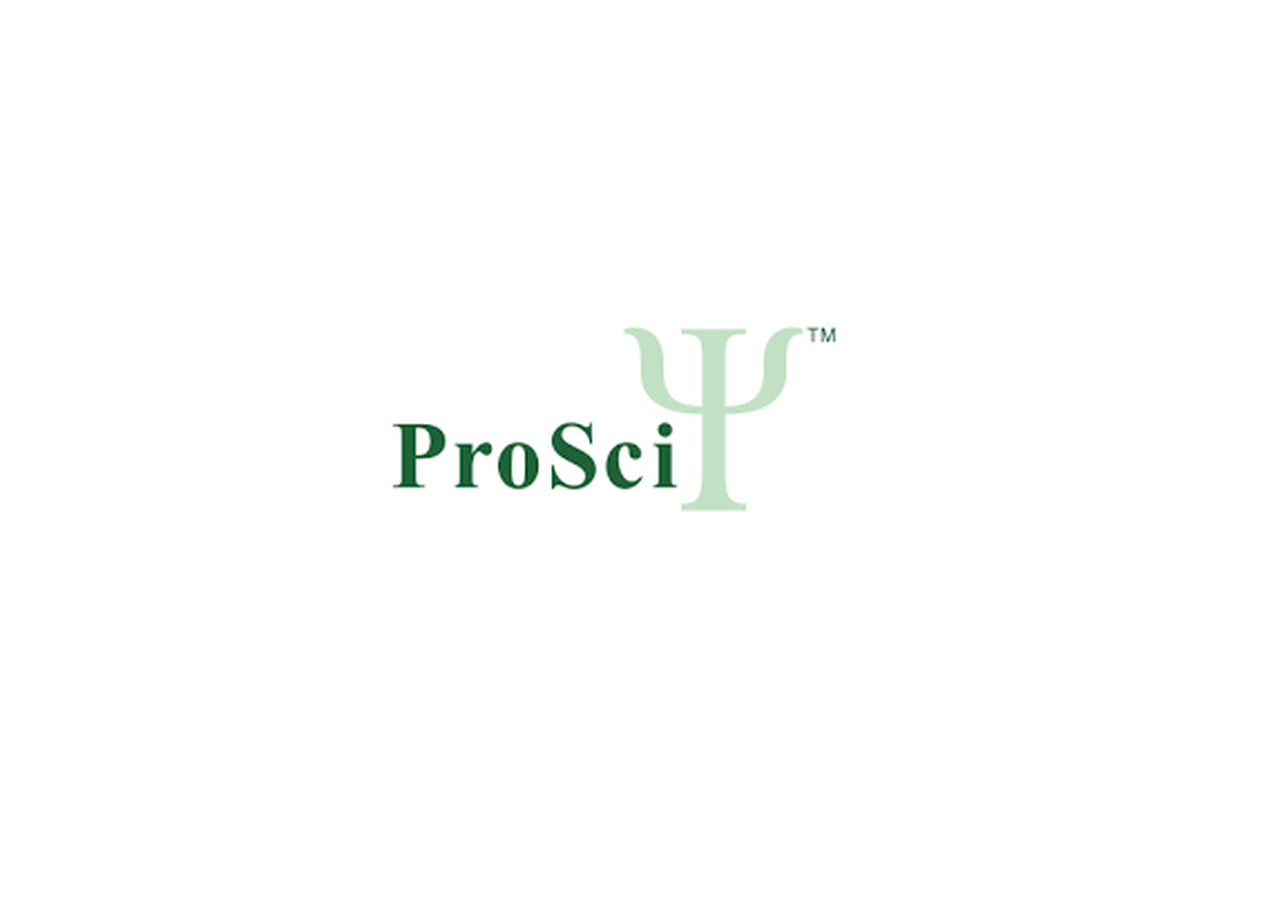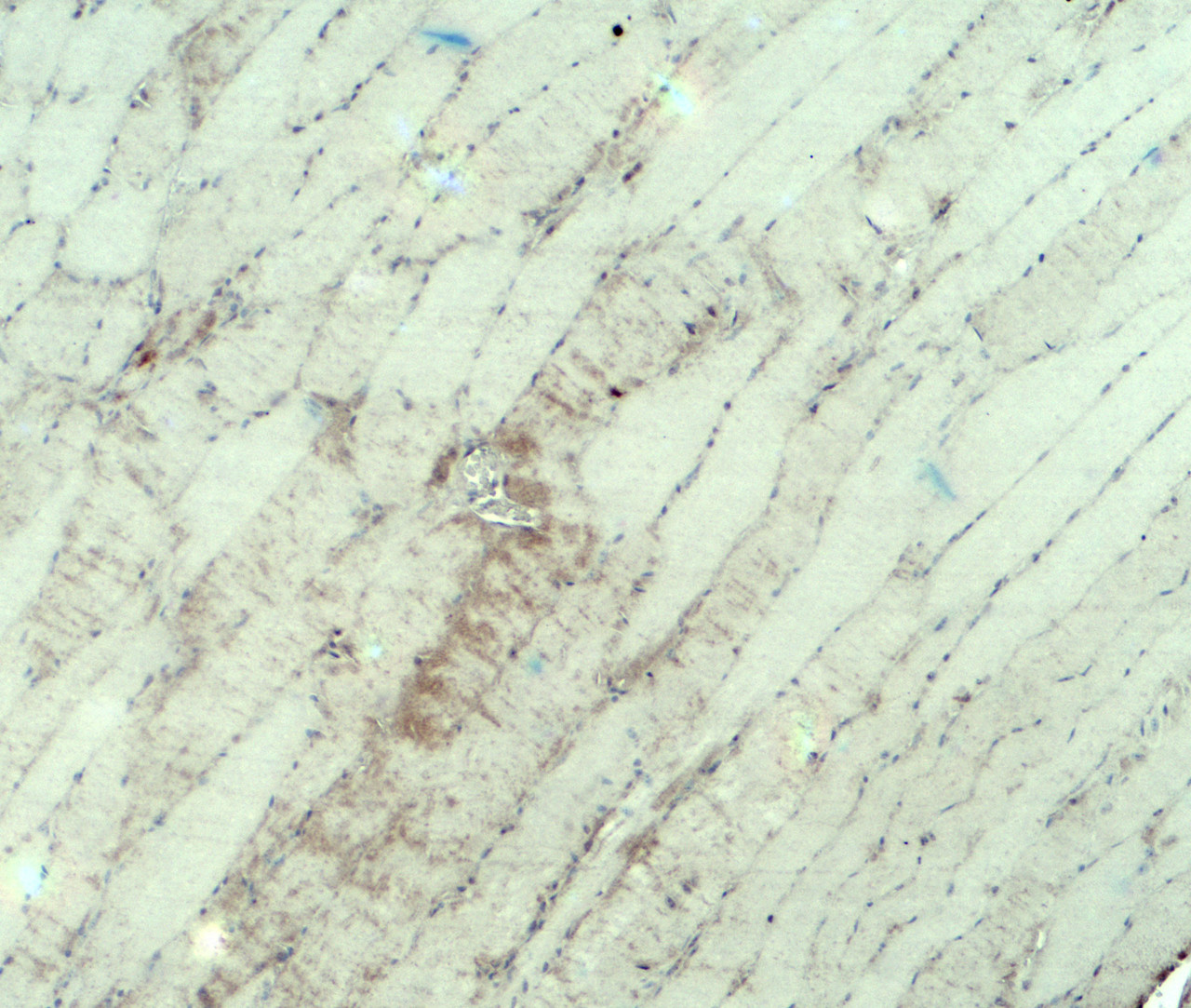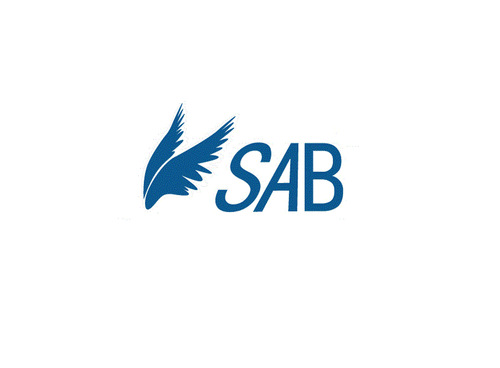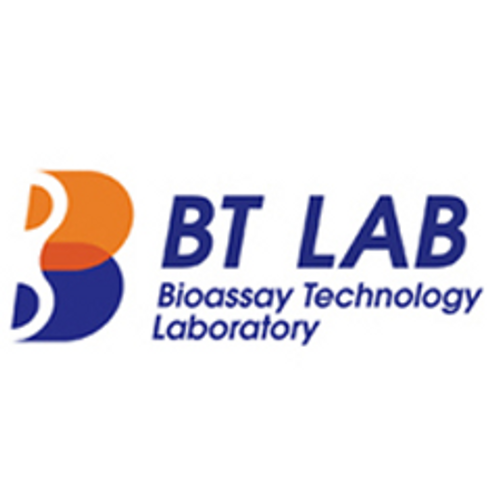Product Description
MYH3 Antibody | 8087 | ProSci
Host: Rabbit
Reactivity: Human, Mouse, Rat
Homology: N/A
Immunogen: MYH3 antibody was raised against a 19 amino acid peptide near the amino terminus of human MYH3.
The immunogen is located within amino acids 30 - 80 of MYH3.
Research Area: Homeostasis
Tested Application: E, WB, IHC-P
Application: MYH3 antibody can be used for detection of MYH3 by Western blot at 1 μg/ml. Antibody can also be used for immunohistochemistry starting at 5 μg/mL.
Antibody validated: Western Blot in human samples and Immunohistochemistry in mouse samples. All other applications and species not yet tested.
Specificiy: MYH3 antibody is human, mouse and rat reactive. MYH3 antibody is predicted to not cross-react with other members of the myosin heavy chain family.
Positive Control 1: Cat. No. XBL-10413 - Fetal Human Skeletal Muscle Lysate
Positive Control 2: N/A
Positive Control 3: N/A
Positive Control 4: N/A
Positive Control 5: N/A
Positive Control 6: N/A
Molecular Weight: Predicted: 240 kDa
Observed: 245 kDa
Validation: N/A
Isoform: N/A
Purification: MYH3 antibody is affinity chromatography purified via peptide column.
Clonality: Polyclonal
Clone: N/A
Isotype: IgG
Conjugate: Unconjugated
Physical State: Liquid
Buffer: MYH3 antibody is supplied in PBS containing 0.02% sodium azide.
Concentration: 1 mg/mL
Storage Condition: MYH3 antibody can be stored at 4˚C for three months and -20˚C, stable for up to one year.
Alternate Name: Myosin heavy chain 3, Myosin-3, Myosin heavy chain skeletal muscle embryonic, HEMHC, MYHC-EMB, MYHSE1, SMHCE
User Note: Optimal dilutions for each application to be determined by the researcher.
BACKGROUND: Myosins are actin-based motor proteins that function in the generation of mechanical force in eukaryotic cells (1) . MYH3 (myosin, heavy chain, skeletal muscle, embryonic) plays a significant role in skeletal muscle development (2) and is also essential for the proper morphology and function of the developing heart (3) . Mutations in this gene have been associated with Freeman-Sheldon syndrome and Sheldon-Hall syndrome (4) .
 Euro
Euro
 USD
USD
 British Pound
British Pound
 NULL
NULL












